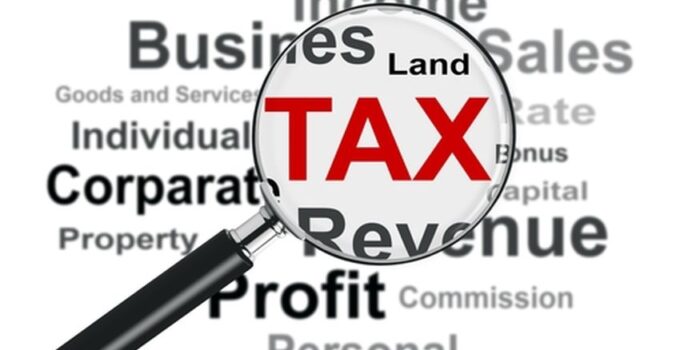Ask a dozen small business owners to describe the specific elements of their companies that create the most stress, and at least seven or eight of them will say taxes. If you feel the same way, you can find solace in the fact that you aren’t alone. But at some point, you have to tackle this issue and figure out how to master it.
4 Things to Know About Small Business Taxes
Taxes aren’t fun to talk about. Not only do they eat away at profits, but they also cause anxiety in small business owners who don’t have experience with accounting. But thankfully, you don’t need the Rosetta Stone to decipher how your small business should approach this issue. With a little clarity, you can make shrewd, proactive decisions that benefit your business both now and in the future.

source:Lynda.com
It would be smart to immerse yourself in some blogs and books on small business taxes to get a complete picture of this topic, but here’s a sampling of some of the more important concepts you need to be familiar with.
- Choose the Right Legal Structures
In terms of taxation, few business decisions are more important than the type of entity you choose to form. Every business structure comes with its own tax classification, rules, and regulations. Choose the right one and you could save your business thousands of dollars per year. Choose the wrong one and you’ll experience headache after headache.
Generally speaking, most small business owners choose between a limited liability corporation (LLC), S corporation, C corporation, or nonprofit corporation. Some choose to stick with sole proprietorships and partnerships, but these are very limited structures, and it doesn’t take long to outgrow them. Understanding the tiny differences between these business structures can be very hard. That’s why you can always check some great articles on this topic, like this HowToStartAnLLC guide.
For the average small business owner who is interested in turning a profit and simplifying financial matters, the LLC is idea, according to IncFile. With an LLC, you don’t pay federal income tax. Instead, net profits or losses are passed through to the personal tax returns of the owners and members. When compared to corporations that have more complex tax requirements, the LLC is a breeze.

source:Lynda.com
- Understand and Meet Deadlines
If you come from a background in which you were a W-2 employee for a business, you don’t have much experience with paying taxes. Your taxes were automatically withheld from your paycheck every couple of weeks and submitted for you. But as a small business owner, you now have to pay your own quarterly estimated taxes in April, June, September, and January.
To calculate your quarterly payment, you’ll estimate your expected adjusted gross income, taxable income, deductions, and tax credits for the entire year and then divide by four. The goal is to get as close as possible so that you have a small tax return in April. You’ll also have to pay attention to other tax forms (if applicable).
“Businesses that withhold federal income tax or social security and Medicare taxes must file Form 941 each quarter (if your employment taxes will be less than $1000 for a calendar year, you can alternatively file Form 944 on an annual basis),” small business blogger Georgia McIntyre writes. “Employers must also file Form 940 annually if they have employees. The amount of unemployment tax is dependent on the amount of wages you pay to your employees.”
If all of this is overwhelming, don’t worry. Take these topics one at a time and do some further digging. Each one is like the piece to a puzzle. As you begin to understand how they fit together, the big picture will make sense.

source:Lynda.com
- Learn How to Depreciate Assets
Most new small business owners fail to understand deductions and depreciation. They assume that it makes the most sense to immediately expense any item they purchase. However, larger purchases – like equipment, furniture, or technology – are typically better off being depreciated.
As a rule of thumb, any asset that will be used in the business for more than a year should be capitalized. In other words, you should create an asset account and depreciate the cost over the asset’s useful life. This makes the most sense in the long run and will benefit the business financially.

source:contractorcalculator.co.uk
- Consider Hiring an Accountant
If you’re like most small business owners, you don’t have a ton of extra time in the day to spend learning about taxes. While you should have a firm grasp on the basics, it’s perfectly fine to hire an accountant to help out.

source:smallbiztrends.com
Keeping the Big Picture in Mind
Few realize just how much creativity is required to handle small business taxes. While there are certainly technical elements to it, there’s also plenty of room to maneuver and optimize with larger business objectives in mind. As you approach the issue of taxes, stay on top of evolving trends and look at your situation from all angles. A wide-angle view of the matter is best.





